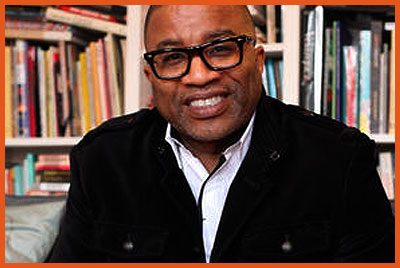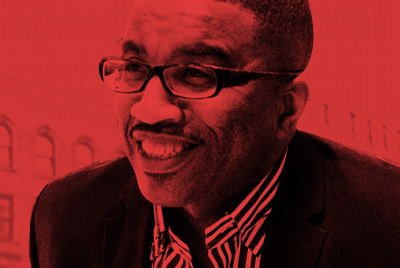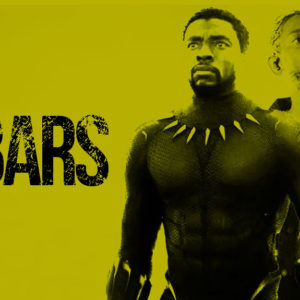J. Michael Harrison is this week’s guest on The MusiQology Podcast, taking Dr. Guy and the listener through the city’s musical history, touching on activism and the centrality of musical cultures to Philadelphia life. We asked him to give our readers an overview of Philly jazz’s past, present, and future.
Listen to Guy’s interview with J. Michael on these podcast platforms!
Spotify: https://open.spotify.com/episode/3RgAl6dpcUw33hz5eypP9P?si=aQsKBX_cRH6ThwYt23Sz5w
Soundcloud: https://soundcloud.com/musiqology/the-musiqology-podcast-episode-2-j-michael-harrison
Stitcher: https://www.stitcher.com/podcast/dr-guys-musiqology/the-musiqology-podcast?refid=stpr
With 20 years under his belt curating his jazz radio show The Bridge every Friday on WRTI, J. Michael Harrison is a Philadelphia institution as foundational to the city’s music scene as the cheesesteak or the hot pretzel is to its culinary scene. “One of the remarkable things about J. Michael Harrison’s career is that he has so many deep connections with the musical community here,” Dr. Guy offers. “It’s almost like going to school every time you listen to him because he has so much information.”
“Not only is he a prolific music collector, he also values exchange with musicians,” Guy continues. “He enjoys talking to them about their processes. He tries to understand their genealogies. And he plays the BEST music on his radio shows. He’s a storyteller, so he has stories about everything and everybody. And he is a most compelling narrator about his own experiences as well. He has a very good memory about things that have happened to him in his life; I am envious of that. And he talks about his influences, be they musicians or his older brother who turned him on to all this music, with great respect.”
To supplement the podcast, we asked Harrison to give us some under-recognized and underappreciated local musicians who have contributed to the city’s iconic past and current creative renaissance. Chief among his choices was recent podcast guest Laurin Talese—“I think she’s really finding her rhythm,” he says. Here are the rest of his picks.
The City’s Musical Bricklayers
“A lot of people would recognize Jymie Merritt, but many would not. Jymie was there with Art Blakey and the Jazz Messengers but he’s never released a record of his own; I think he’s on over 200 records but has never released anything of his own. And definitely spent some time in New York and definitely on the road with other Philadelphians like Bobby Timmons, Lee Morgan, and people like that. I remember doing an interview with Jymie Merritt and some of the knowledge and associations he was dropping…He’d speak about George Washington Carver coming to his house. George Washington Carver doesn’t come to your house! These are the types of incredible stories Jymie has, and its these types of folks that make up the city’s musical fabric. People know who Jymie Merritt is. But many don’t know the in-depth detail of what he represents and his contribution to Philadelphia.”
“Another lion is Hasan Ibn Ali. Amongst the old heads and folks in the industry, they definitely know his contributions, but to a lot of folks who are just coming to the music, this is a name you should check out. The Legendary Hasan! Phenomenal piano player but very limited as far as material that you can find. His work with Max Roach and some others and of course here in Philadelphia was significant. There’s a list that goes on and on of great treasures waiting to be rediscovered here, and the Legendary Hasan is certainly a diamond!”
Contemporary Canon
“He’s getting a little bit of attention right now because he’s recognized because of winning the Bennie Golson Award, but Jamaaladeen Tacuma is definitely a cat that is making waves. Even here on my desk, you’ll find Wolfgang Puschnig’s Mixed Metaphors, which features Questlove and a number of other well-known musicians. Jamaaladeen was central to the production of this record. That goes back to 1994, but it was recently re-issued and Jamaal is a cat who, if you start peeling away the layers, he has been a forerunner in many respects. He was scooped up by Ornette Coleman as a teenager to be a part of Prime Time, but he’s still influential today, particularly for young up-and-coming musicians. The first time many Philly musicians go to Europe, for instance, it’s usually with Jamaaladeen. There are so many layers you can start to discover with him.”
“Anthony Tidd is from the UK but has been here in Philadelphia, I’m sure, over twenty years at this point. He came here as a teenager, brought here by Rich Nichols, the late manager of the Roots. Nichols, Greg Osby, and Steve Coleman were involved in bringing him to the United States because they saw that this guy was a prodigy. So early on, he was doing production work with the Roots and things like that, but he’s a phenomenal bass player as well. He toured with Steve Coleman. He’s been involved with the Kimmel Center for several years on the education side but also produces the Sittin’ In series at the Kimmel Center as well. And he’s, again, I think folks have gained a connection to him in recent years, but I know for a period of time, he was really under the radar in many respects. It’s really just great to see him adapt to Philadelphia and make Philadelphia his home but also add to the fabric of the city.”
The Face of Jazz to Come
“There’s definitely some young cubbies that are doing their thing. One is Immanuel Wilkins, who is at Juilliard right now; I think he’s a senior. Cats up in New York can’t get enough of him. Everybody wants Immanuel. He is somebody who was playing the National Anthem at Eagles games and Phillies games when he was 12, 13 years old, and now he’s on the rise. Just to see his progression now has been really phenomenal. He’s a special talent, you know? I’m really interested to see what transpires over, let’s say, the next ten years with him.”
“For the last one, I’ll dip across the river…if Philadelphia is a borough of New York, Camden is definitely at least extreme east Philadelphia. Camden’s scene is so important; there are some heroes over there. Arnetta Johnson recently graduated from Berkelee, and she comes from Jamal Dickerson and his brother Nazir and their family have been pivotal…really significant in nurturing and cultivating young jazz musicians from the Camden area. The work they do helped spawn an Arnetta Johnson and JoJo Streeter and a lot of these folks that are touring the world with great musicians. Arnetta, she toured with Solange. She played the Super Bowl with Beyoncé. She’s connected to Tia Fuller, Ingrid Jensen, Terri Lyne Carrington as well. When I listen to her music, it’s steeped in jazz but also very current. She represents hip-hop culture and is able to mesh the jazz and the hip-hop culture component very nicely in my opinion. I love what she’s doing.”

 Share On Facebook
Share On Facebook Tweet It
Tweet It







